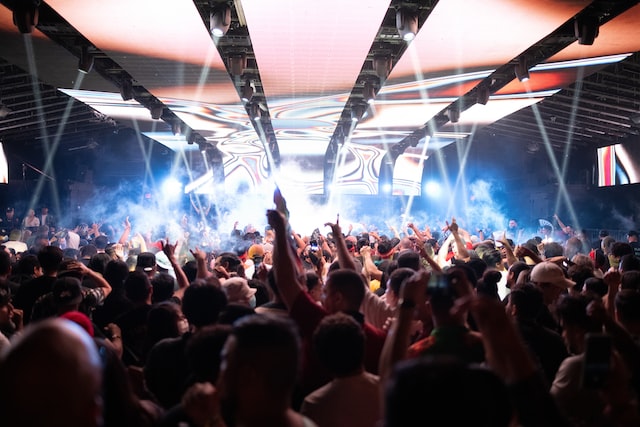March 2023 – Cities increasingly consider the quality of their nightlife as a key component of their cultural and economic dynamism. Such quality encompasses not only the number and offer of nightlife venues and events but also, crucially, the safety of revellers.
Nightlife safety is an area in which the European Forum for Urban Security (Efus) has been working for over 30 years, advocating for comprehensive local policies drawn up in collaboration with all the relevant actors.
Efus promotes local policies that take into account the necessary balance between party lifestyle and the tranquillity of local residents as well as the diversity of urban spaces. One of Efus’ key activities in this area is to organise exchanges and collaboration between cities across Europe on nightlife policies and practices so they can gain insights from one another.
Comprehensive nightlife policies
Managing nightlife is a complex challenge for city councils. It involves many stakeholders, both public and private, and different types of public. In its Security, Democracy and Cities Manifesto, Efus advocates for a global, integrated, cross-sectoral and pragmatic response that encompasses health, security, mobility, economic and cultural activity, the management and use of public spaces, and peaceful coexistence among all relevant actors (nightlife actors, residents, revellers, tourists, workers, etc.).
Indeed, over the past decade or so, a growing number of cities worldwide have been stepping up their efforts to address the many aspects of nightlife in such a comprehensive, joined-up manner, for example by creating the role of Night Czar, Night Mayor or similar figure.
Preventing sexual harassment
One issue that has come to the fore in recent years, notably in the wake of the #MeToo movement and the Covid pandemic, is sexual harassment in nightlife venues. Both nighttime users and public authorities have launched campaigns all over Europe to prevent such crime and assist victims.
The approach followed in schemes such as Ask for Angela in Bordeaux and other European cities (notably in the UK), Purple Dot in Spain, and the prevention plan launched in Brussels in 2022, to name a few examples, is to involve nightlife venues, notably by training their staff, and revellers in detecting incidents and helping victims, notably by offering safe places where they can find refuge.
The EU-funded SHINE project
Efus and its partners in the EU-funded SHINE project, led by the University of Maribor (Slovenia), worked for three years (2020-2023) on such an approach. With the cities of Vilnius (Lithuania) and Ljubljana (Slovenia) as partners, the research and solutions designed in the framework of SHINE are applicable by any city interested in offering a safe nightlife for all.
Assessing the situation on the ground
The SHINE partners conducted in-depth research on the ground to assess the extent of sexual harassment in nightlife venues in Vilnius and Ljubljana, and how it is perceived by victims, municipality officials, representatives of law enforcement agencies, nightlife venue owners and staff, and NGOs working on prevention.
They found that the legal definition of sexual harassment is too narrow and does not properly reflect the victims’ experience. Another important finding is the prevalence of underreporting, which is partly due to the restrictive legal definition, but also the victims’ fear of being misunderstood or shamed, and general mistrust in the justice system and police. This in turn reduces the reliability of the available data. This is why the SHINE project considers ‘cultural’, ‘societal’ and ‘sociological’ definitions, as well as the victims’ own description and experience.
Sharing SHINE’s insights across Europe
The main takeaway from the project is the need for increased cooperation among municipal authorities, police and nightlife venue owners/managers and staff to prevent and detect sexual harassment in and around venues. Furthermore, the project’s partners agreed to further discuss regulatory frameworks.
As part of its role in disseminating the project’s findings, Efus organised in 2022 five seminars with cities across Europe (Budapest in Hungary, Leuven in Belgium, Prato in Italy, and Saint-Brieuc and Strasbourg in France) during which city officials and their partners exchanged with the project’s experts.
> Got a few minutes to spare? Meet the SHINE experts on our YouTube channel:
- Thierry Charlois, Programme Manager for Nightlife, city of Paris
- Mathilde Neuville, co-founder of the Consentis association, France
- Cristina Vale Pires, expert in harm reduction, Portugal
- Aleksandra Ivanković, Deputy Director of Victim Support Europe
> Interested in regularly exchanging with other cities and experts about safer nightlife? Join our working group, which is co-led by our partner The Nightlife Platform




